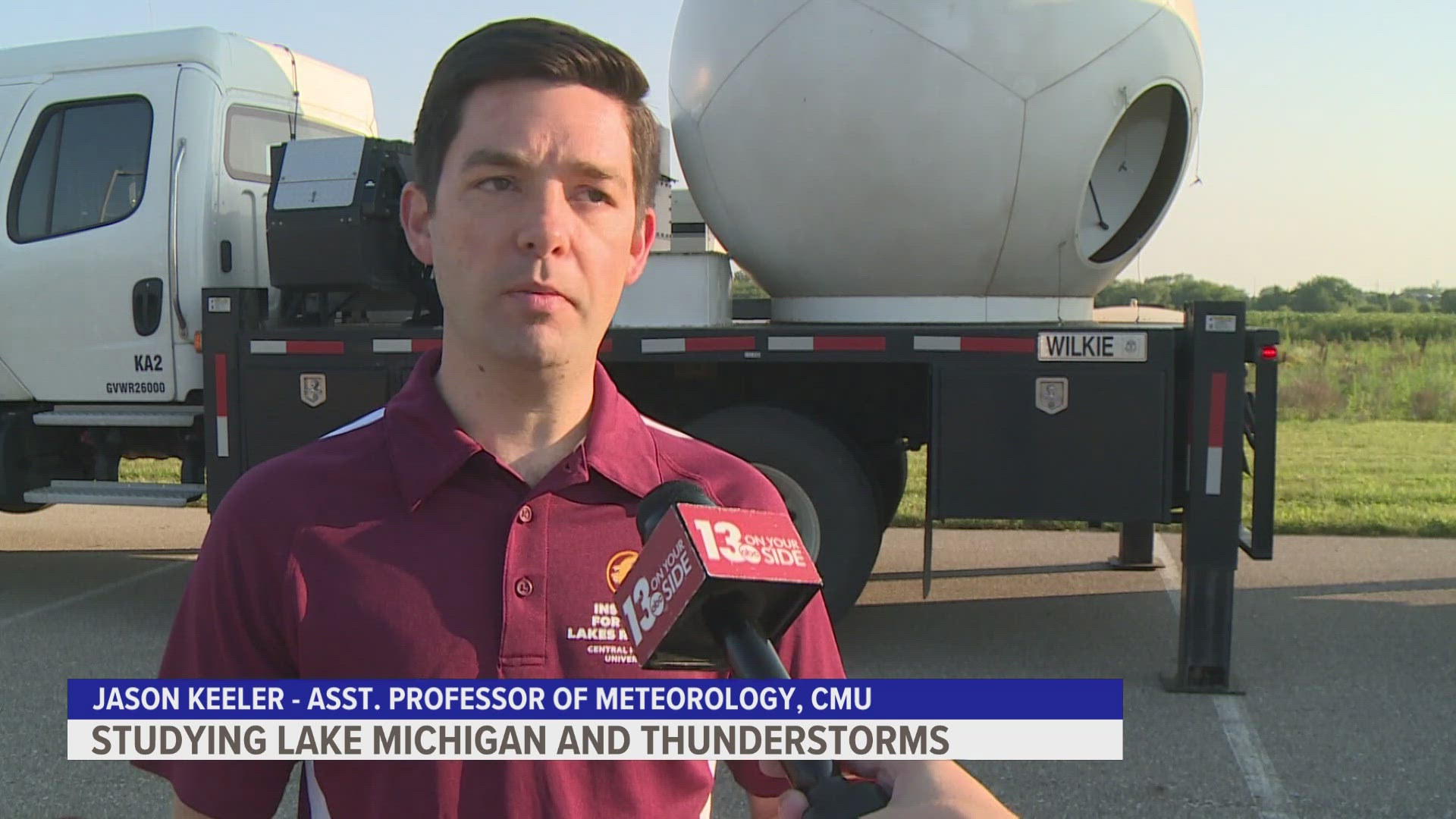HOLLAND, Mich. — A team of scientists and students from across the country launched a month-long study into Lake Michigan's impact on thunderstorm formations in West Michigan on Friday morning.
Led by Central Michigan University (CMU), the MITTEN-CI Project was launched at the West Michigan Regional Airport in Holland.
The project is funded by a nearly $2.5 million grant from the National Science Foundation's Physical and Dynamic Meteorology program.
MITTEN-CI, short for Maritime to Inland Transitions Towards ENvironments for Convection Initiation, was created to determine the influence of Lake Michigan on the key ingredients for thunderstorm development: Moisture, instability and lift.
The team consists of scientists from CMU, the University of Illinois, Texas Tech, CU Boulder and the University of Nebraska-Lincoln. There will be more than 20 undergraduate and graduate students involved in the project as well.
The research will be gathered using Uncrewed Aircraft Systems (drones), more than 600 weather balloon launches, two Mobile Mesonets, two mobile radars, a Doppler LiDAR and six weather stations that will measure the transfer of heat from the ground to the atmosphere.
The various instruments will be used along a transect between the Holland and Saugatuck areas and northern Eaton County.
On the project's site Dr. Jason Keeler, the lead investigator from CMU, said the project is all about understanding how the transition from maritime to inland environments can lead to convection initiation, the more technical term for thunderstorm development.
The site said as air masses travel across Lake Michigan, they undergo changes in temperature, humidity and wind.
In the summer, the lake's cooling effect helps to stabilize the atmosphere, stopping thunderstorm formation.
However, as the air masses travel back over land, they become destabilized, leading to thunderstorm development.
Once the fieldwork is complete, the data from the project will be analyzed and used in conferences, peer-reviewed journals and outreach initiatives in the years to come.

